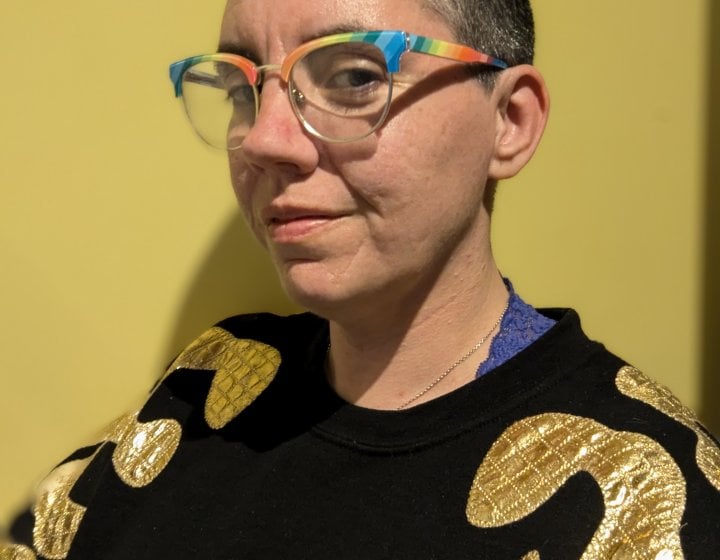Participatory practice and heritage for all
Falmouth University and Historic England are excited to invite applications to this AHRC-funded Collaborative Doctoral Partnership for a PhD on 'The potential of participatory practice to positively engage both under-represented and established audiences in heritage'.
Project brief details
The heritage sector has been actively seeking to widen who and what ‘counts’ as heritage and what in the historic environment is recognised as important, to ensure that heritage is inclusive of both established and under-represented audiences. But seeking to attract new audiences can risk alienating existing ones, and vice versa – and can unintentionally result in differently valued offers for each group, or have benefit for only as long as a particular project is running. The challenge for Historic England (HE) is therefore to understand how the historic environment can genuinely reflect and engage ‘everyone’: both at the project level but also at a broader, discursive and structural one, so that its approach is evidence-based and sustainable.
This studentship proceeds from the hypothesis that participatory heritage practice – that is, heritage engagement as performance and practice, from arts-based programming to intangible heritage practices and projects – is one means of effectively and positively engaging both established and under-represented audiences. More work is needed to understand how and when participatory practice can have these positive effects, and how they can be appropriately and effectively embedded into policy and practice. This gap in knowledge is reflected in a clear and vital need for HE. New evidence, understandings, and practical strategies are needed to ensure that this work, and the heritage it reflects, is truly inclusive of new and existing audiences – that is, everyone.
This studentship will adopt a combination of evaluative and creative methods. The student will explore available data to evaluate the successes and challenges of participatory practices in positively engaging both new and existing audiences; they will then undertake a case-study placement within a live HE project and, using practice-based research, work with internal and external stakeholders and audiences to further explore the issue in-depth and identify practical recommendations.
How can Historic England leverage the inclusive potential of participatory practice to ensure that opportunities to care for, enjoy, and celebrate England’s historic environment are positively taken up by all?
- What are the challenges and successes for participatory heritage in positively engaging new and existing audiences?
- What can be learnt from these to inform HE’s practice and policy to successfully ensure that heritage is for everyone?
- How does participatory practice work to make heritage more inclusive?
We want you to bring your own ideas, expertise, and experience to shape ways of responding to this question and deciding with the supervisory team what the project could look like. We’d like your proposal to consider how the following could contribute to addressing the research questions:
- Evaluation: Making use of existing data (from Historic England and elsewhere as available) to evaluate the successes and challenges of a range of participatory practices.
- Case study: This studentship will involve a placement within a live Historic England project (to be determined in discussion with HE supervisory team). Proposals should address how such a case study offers the opportunity to work creatively and collaboratively with people and place to better understand a particular instance of participatory practice in relation to the research questions.
- Creative practice: Given the creativity involved in much participatory practice, proposals should use creative methods (i.e. making the PhD either entirely or partly practice-based) as a means of exploring the question and/or formulating an output. The creative method is open to the student to define, but should be within a subject area focused on participatory and/or co-created digital/immersive/augmented media.
Download our Research Degree Proposal & Application Guidance Notes below
Supervisory team

Dr Laura Hodsdon
Associate Professor in Heritage, Culture & Society
Dr Laura Hodsdon is Associate Professor in Heritage, Culture & Society, working on heritage and ...

Professor Tanya Krzywinska
Professor of Digital Games
Tanya started playing computer-based games on Usenet when working at the Digital Equipment Corporati...
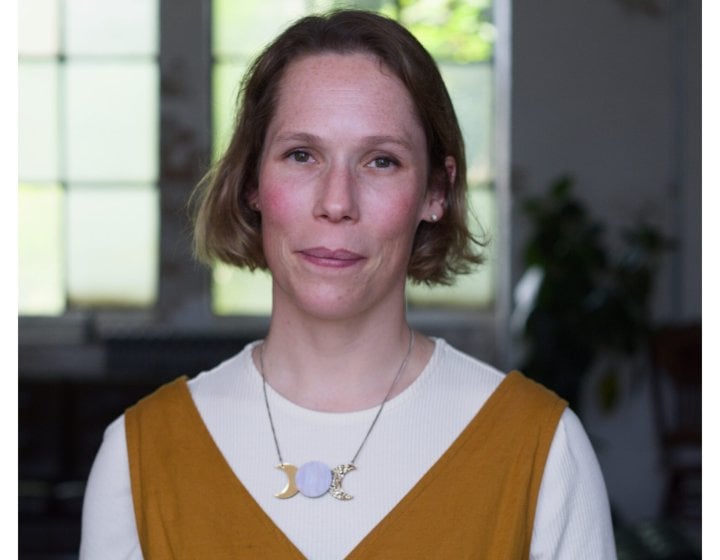
Tamsin Silvey
Cultural Programme Curator at Historic England
Dr Tamsin Silvey has worked for over 17 years in art and heritage organisations, specialising in developing inclusive engagement programmes in partnership with national and local cultural organisations.
How to apply
Head over to our Apply page, to begin your application. If you have any questions regarding your application, please contact PGR@falmouth.ac.uk.
The Application Deadline is 25 May 2025.
We also ask that applicants complete our Collaborative Doctoral Partnership Scheme EDI Monitoring Form.
As part of your application, we will ask you to provide short responses of up to 500 words to let us know:
- Your thoughts on the most important challenges in the heritage sector in England with respect to inclusive audiences, evidencing your answer using your knowledge of academic literature, heritage policy, and/or your own experience.
- Your ideas on how you might go about delivering this project based on our suggested methodology above - in particular, your ideas for the creative practice part of the case study (e.g. how might you go about answering the research questions using your chosen practice, and what sort of output might you produce?)
There is more information on what we’re asking for in the guidance notes.
Your application will be assessed on the basis of the following criteria:
- Methodology and approach
- Critical writing
- Creative practice
- Heritage sector experience
- Research experience/qualifications
- Level of risk
Interviews will be held on 4 June 2025. This will be in the format of an informal conversation between the Falmouth Lead Supervisor (Dr Laura Hodsdon), Historic England Lead Supervisor (Dr Tamsin Silvey) and Falmouth University Head of PGR (Professor Lee Miller).
Details of Award
This research studentship is one allocated to Historic England by the AHRC. The successful student will be expected to spend time carrying out research and gaining relevant experience with the partner in an agreed Historic England location as part of the studentship.
The successful candidate will be encouraged to participate in professional development events and activities organised for all Collaborative Doctoral Partnership students who are registered with different universities and studying with cultural and heritage organisations across the UK. These activities are organised by a coordination team based at the V&A and are designed to provide CDP researchers with the knowledge, networks, and skills to thrive in their future careers.
This studentship is available on a part-time or full-time basis. CDP doctoral training grants fund full-time studentships for 4 years or part-time equivalent up to a maximum of 8 years.
The award pays tuition fees up to the value of the full-time home fee. Research Councils UK Indicative Fee Level for 2024/2025 is £5.006*.
Students with a 'Home' fee status can be based in any UK location and will only need to spend 4 weeks in a year in Falmouth. Students with an ‘overseas’ fee status will have the difference between the UK and overseas fees rate covered and will be required to reside in the UK (with weekly check-ins in person in Falmouth) until completion of the PhD.
The award pays an annual stipend for all students. This stipend is tax free, and is the equivalent of an annual salary, enabling the student to pay living costs. The UKRI Minimum Doctoral Stipend for 2024/2025 is £20,780 plus allowance of £1000/year. There is also a CDP maintenance payment of £600 per year. Further details can be found on the UKRI website www.ukri.org/publications/terms-and-conditions-for-training-funding
The successful candidate is eligible to receive an additional travel and related expenses grant during the course of the project courtesy of Historic England worth up to £1,000 per year for 4 years.
Enquiries
Project brief & project proposal enquiries
If you have any questions, please contact Dr Laura Hodsdon.
Application enquiries
For all other application related enquires please contact the Research & Development team.
T: 01326 255831
Additional resources
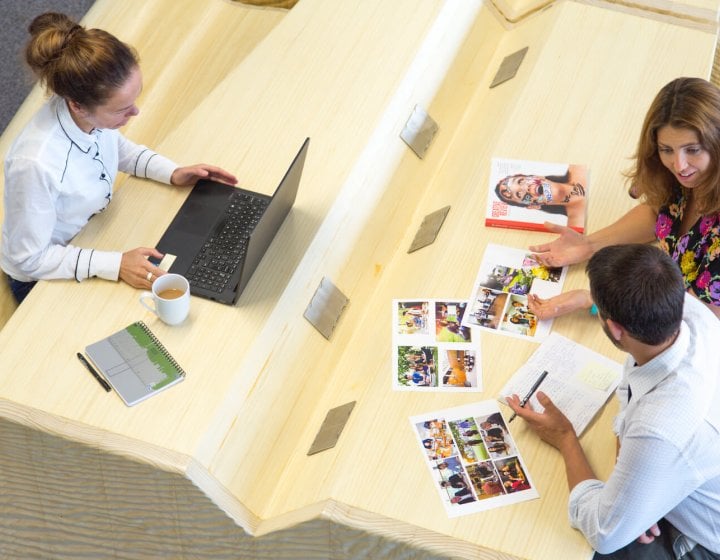
Fund your Research Degree
See the options available to help you fund your research degree.
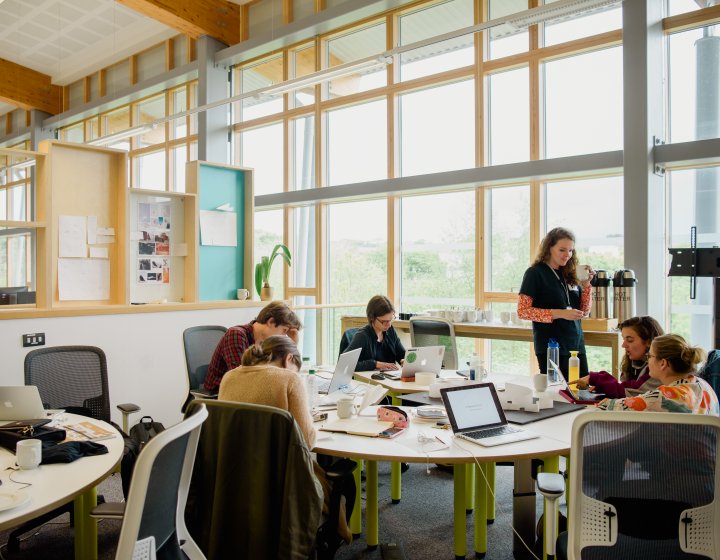
Falmouth Doctoral Studentships
You can apply for a fully-funded Falmouth Doctoral Studentship as part of your research degree appli...
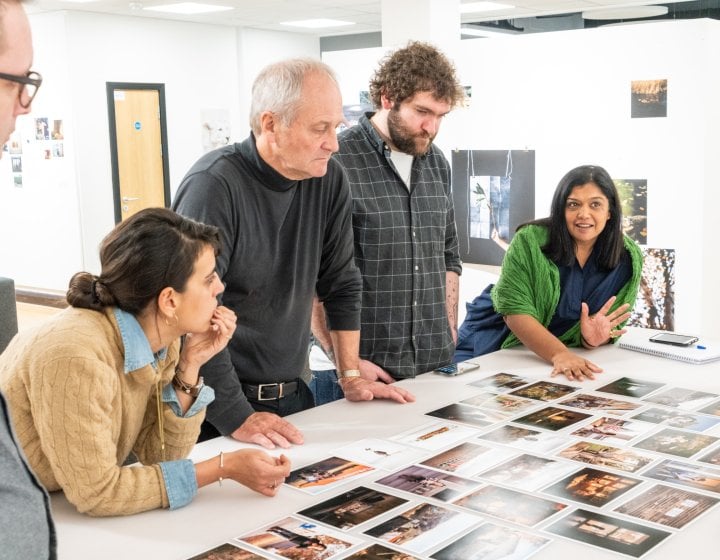
Research & Knowledge Exchange
By stepping beyond disciplinary lines, harnessing creativity and working with communities, we delive...
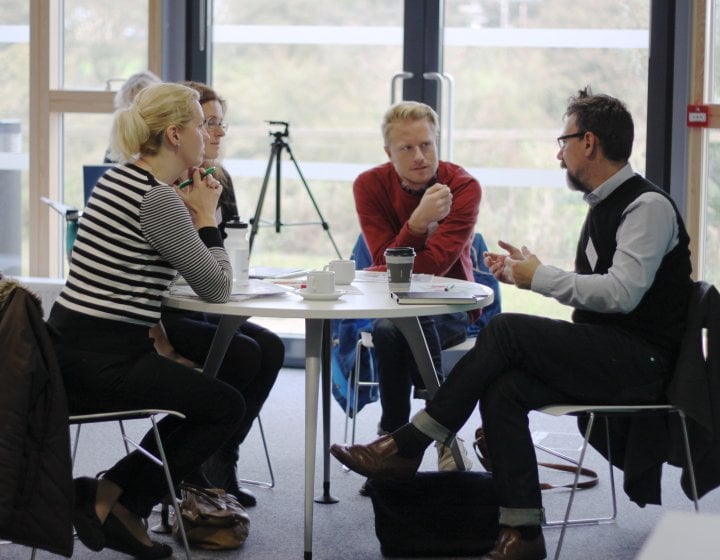
Doctoral Project Briefs
We invite MPhil and PhD project proposals that respond to a doctoral project brief.
